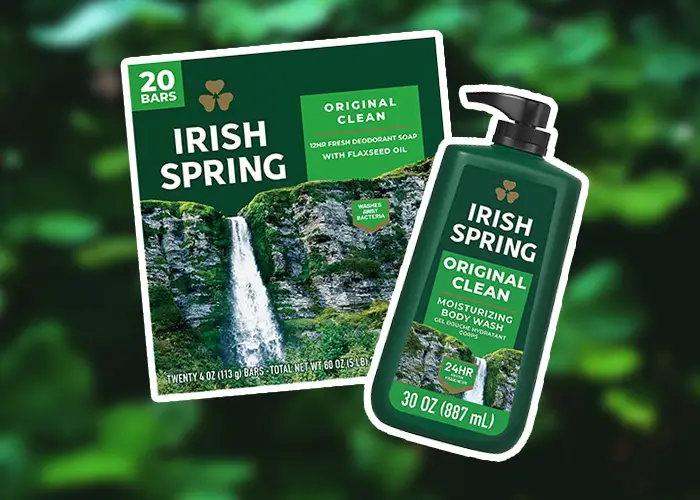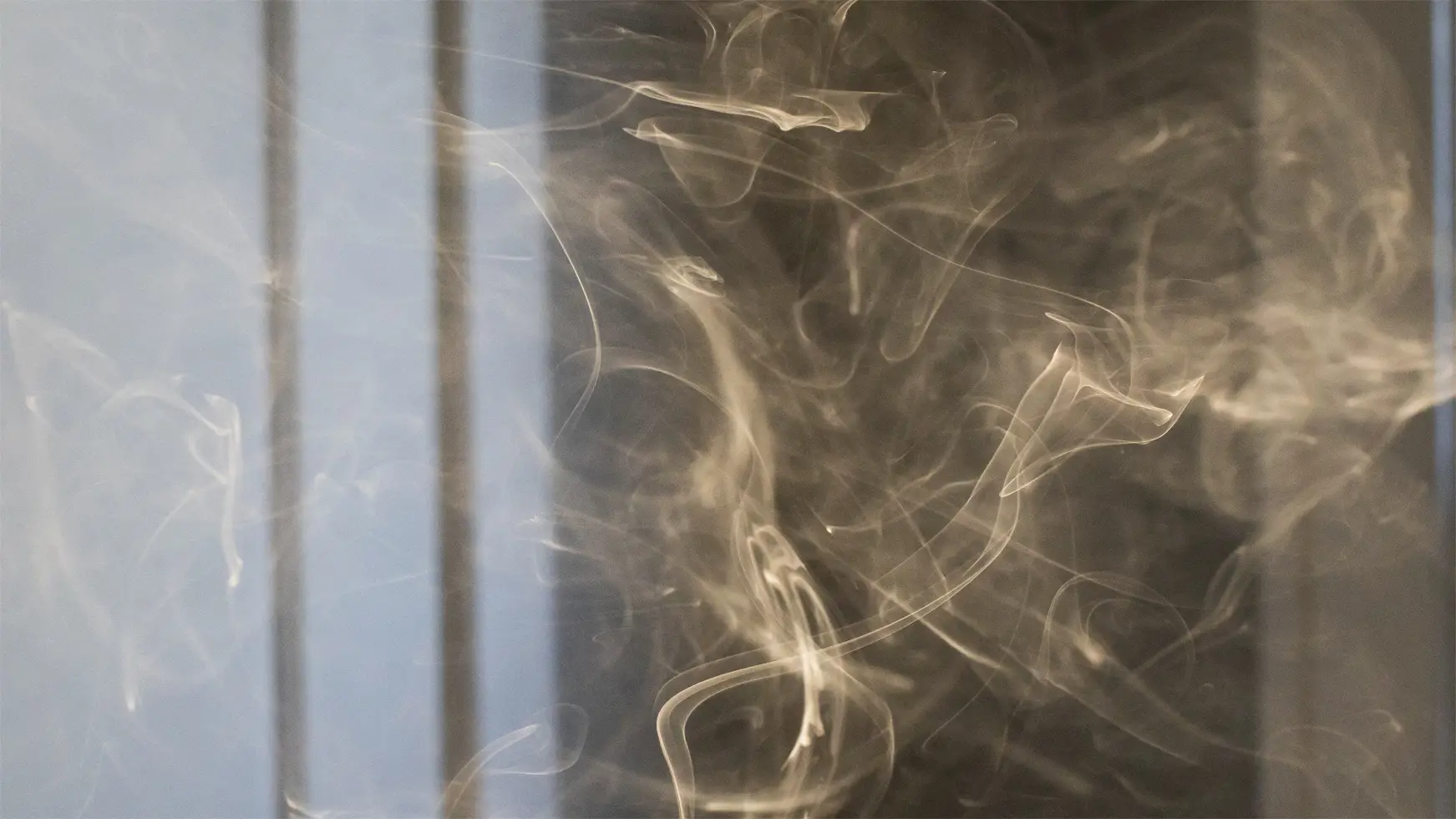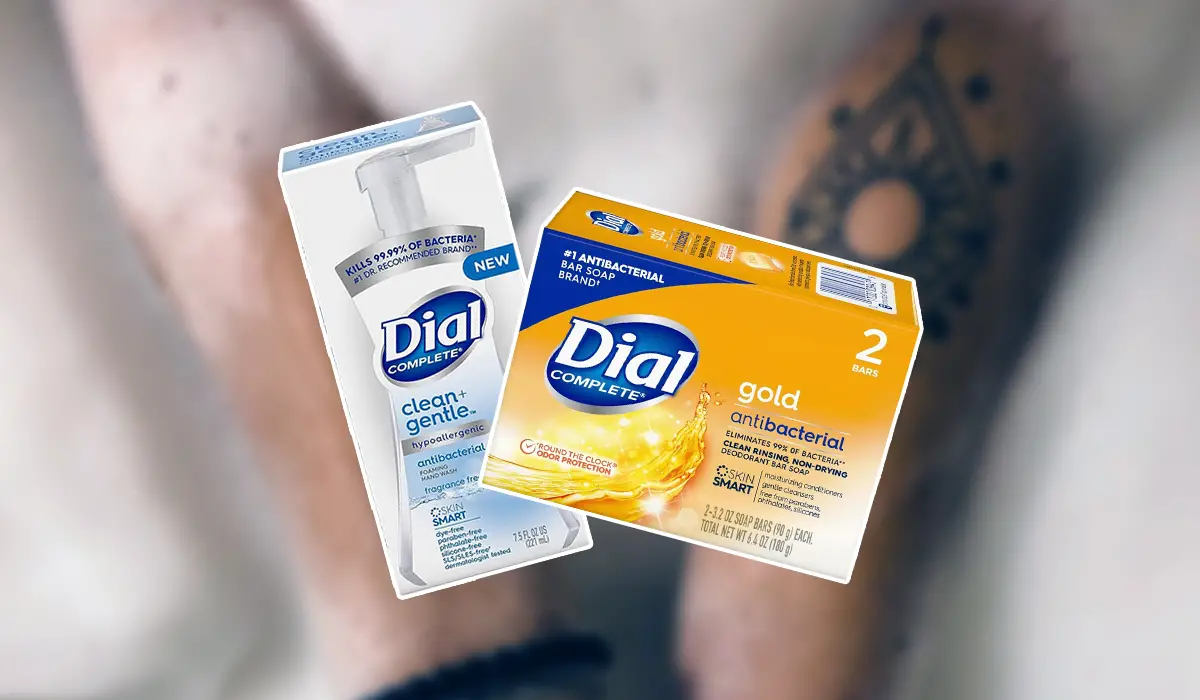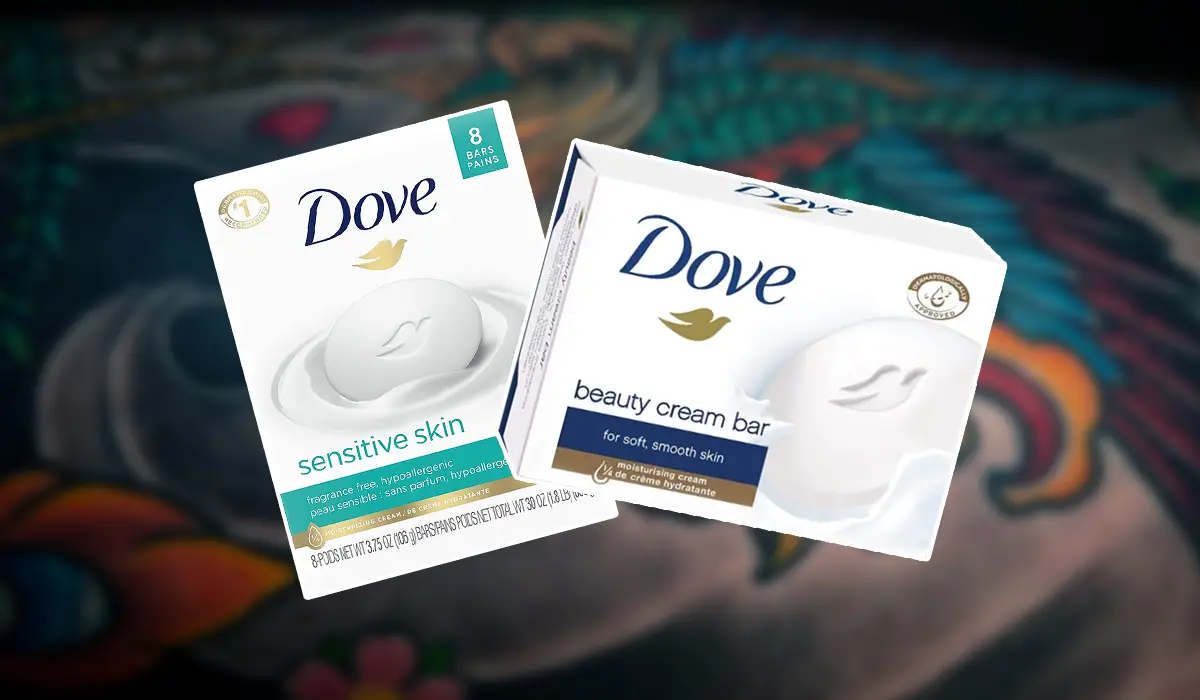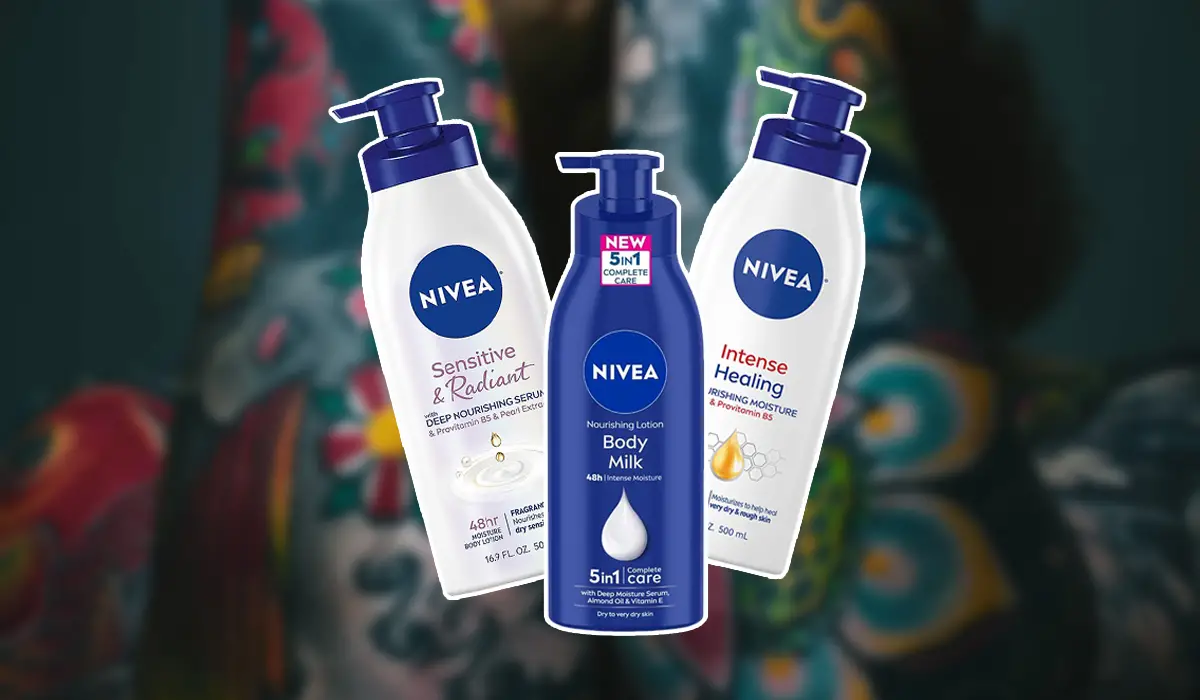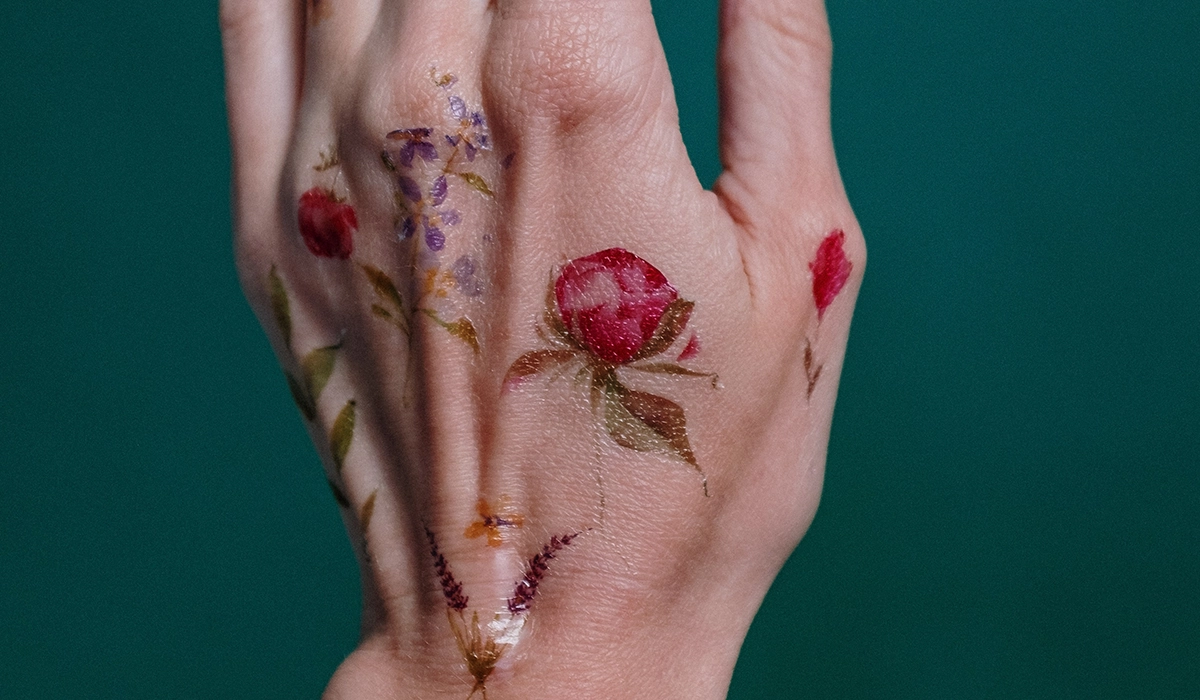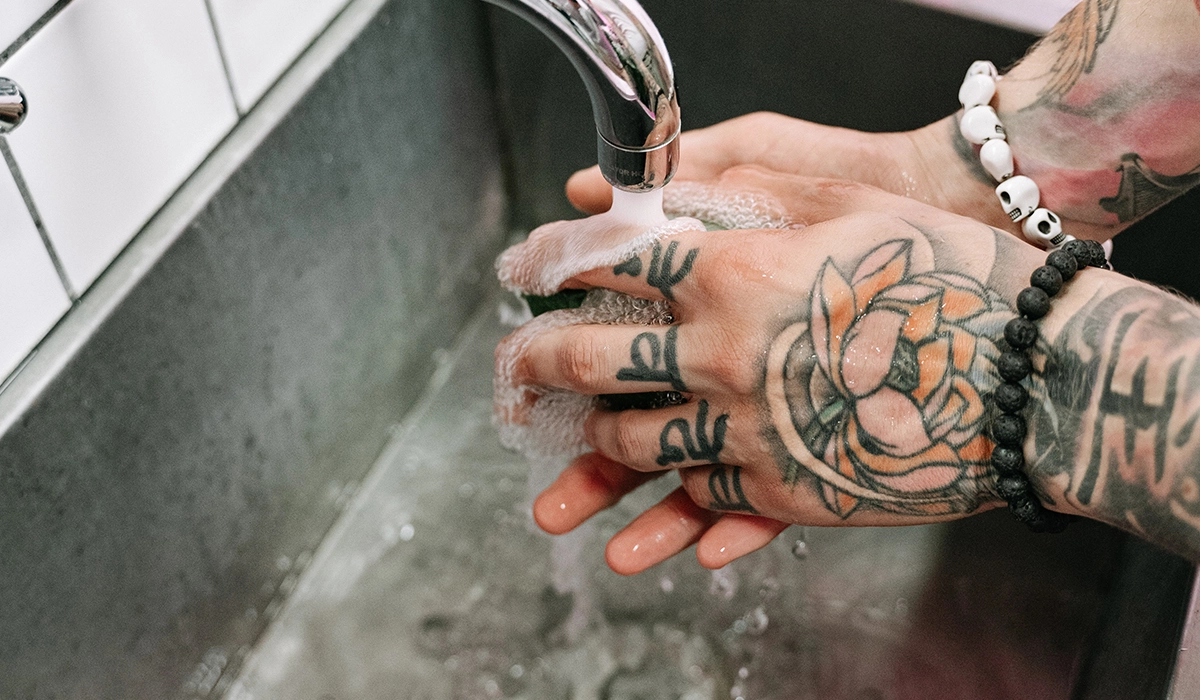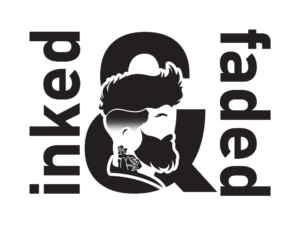Do you have an itchy tattoo? If so, don’t worry! Itching is a common side effect of the healing process that typically lasts for days or weeks.
Tattoo itching is a common occurrence for anyone who gets a tattoo. Itching can be caused by many things, such as dryness, healing of the tattooed area, allergies to ingredients in the aftercare products you are using, or even an allergic reaction to your tattoo ink.
There are some things you can do to help with this itching sensation, and we hope by the end of this blog post, you will feel relieved from your itchy tattoo woes!
ADVERTISEMENT
ARTICLE CONTINUES BELOW
What Is Tattoo Itching?
Tattoo itching is when you get an itchy, rashy, blistering skin reaction to your tattoo. It happens naturally as a tattoo heals, but it can also happen for concerning reasons.
You may want to scratch at your fresh tattoo, but it’s not just you. Anytime the skin is damaged with needles and ink, it will cause some level of itchiness for anyone, even if they’re getting their first tat!
A new tattoo will always be more delicate than an old one; that’s why sometimes we experience unpleasant side effects like allergic reactions.
When you get a new tattoo, the skin is damaged with needles and ink that can cause itchiness at some point.
Why Do Tattoos Itch?
While it may be concerning at first, tattoos itch naturally when healing. The same is true for tattoo peeling. But, there are also concerning reasons why your tattoo might be excessively itchy. The most likely cause of excessive itching is an allergic reaction to either the tattoo ink or one of several common ingredients in tattoo inks.
It’s important to remember that your tattoo is going to itch for the first few weeks. This will naturally subside nearing the end of the tattoo healing process.
If you’re not sure why your tattoos are itching, speak with your dermatologist to find out what can be done about this challenging situation.
How to Ease an Itchy Tattoo
A tattoo is most likely to give your skin a light red tint at the tattoo site. As it heals, your skin will dry out during the day. This dryness leads to itchiness, and gets worse the longer you leave it.
If possible, avoid getting tattoos on parts of your body that are typically sensitive to pain. If you definitely want to get a tattoo in a sensitive area, consult your tattoo artist first for the best aftercare practice.
For tattoos on more sensitive areas like behind your knees or shoulders, using a numbing agent before getting tattooed can also make a big difference.
To ease the itchiness of your tattoo, use a scent-free lotion or moisturizer to keep your skin hydrated.
ADVERTISEMENT
ARTICLE CONTINUES BELOW
Additional Tips for Itchy Tattoo Relief
There are a few ways that an itchy tattoo can be alleviated. The first and easiest is to take a warm shower or bath and apply a scent-free lotion or moisturizer.
This will open up your pores and help get rid of excess tattoo ink from the top of your skin. It will also make the skin soft and increase blood flow to the area, which can help numb it.
The following way is taking a non-prescription antihistamine tablet such as Benadryl or Zyrtec.
These medications will provide relief from the tattoo itch while you rest for at least an hour before going to bed.
Another option is using a cortisone cream which should only be applied sparingly to the area that itches.
You may also want to apply a cooling mask-like aloe vera to the area, as it can help alleviate itching.
Finally, if home remedies do not work, you may want to talk with your tattoo artist about treatments for excessive itching.
Causes of an Itchy Tattoo
General itching at the tattoo site is to be expected. This is your body’s natural reaction to getting a tattoo. However, excessive itching can be a cause for concern. Take a look at the below causes for an itchy tattoo, outside of what you should expect.
Infection
A yeast or bacterial infection can cause the itching from a tattoo to be worse. Take steps to prevent infection, such as frequent hand washing and regularly cleaning the tattooed area with warm water and antibacterial soap.
Allergic reaction
You may have an allergic reaction to some of the ink used. If the ink used by your tattoo artist contains ingredients you’re allergic to, you may notice excessive redness or swelling at the tattoo site. If you notice this, contact your doctor immediately.
One study shows that tattoo pigments may contain toxic metals, such as aluminium and calcium. These can trigger allergic reactions like contact dermatitis to those with sensitive skin or an existing allergy.
Ink contamination
According to their trusted source, the FDA says that even if the tattoo ink is labelled as sterile, it can still cause an allergic reaction in some people. The ink from tattoos contaminated with bacteria or viruses has been reported to sometimes cause skin inflammation.
How to Relieve Itchiness Without Scratching a Tattoo
Here are the six ways to soothe an itch without scratching the area:
- Apply lotion
- Put a cold pack on the area.
- Take an over-the-counter medication like Benadryl or Claritin.
- Try antihistamine tablets (e.g., Allegra, Zyrtec).
- Keep your skin moisturized with Vaseline or other similar products.
- Use tea tree oil to help soothe itchy skin and prevent infection of any open wounds that may be present in the affected area.
How Long Is a Tattoo Itchy For?
The itching should subside within 1–2 weeks. To avoid scratching the tattoo, apply ointments or creams that your artist recommends.
If you experience any itching after it has healed and is no longer raw, then see a doctor for possible infection in some cases. See a doctor if it persists or gets worse. It can lead to scarring if left untreated!
Tattoo Itching FAQs
How long will my tattoo be itchy?
Your tattoo should itch for one to two weeks from the time you got it, give or take. If your tattoo is itching a month after receiving it, contact your tattoo artist and seek their advice.
Can I slap my tattoo if it itches?
Funnily enough, yes, you can lightly tap your tattoo to relieve some itchiness. However, you will receive better results if you apply a scent-free lotion to hydrate your skin, or apply a ice pack to relieve the swelling.
Why is my tattoo itchy and bumpy?
A tattoo itches naturally as it's healing. However, if you're finding that your tattoo is incredibly itchy, it could be an allergic reaction to the ink used or a product you're using for tattoo aftercare.
How do you tell if a tattoo is healing properly?
For the first few days, the skin around your tattoo should be a light red tint. You should expect some light swelling and general itchiness. You'll also notice your tattoo to start peeling -- this is normal too.
Conclusion
Itchy tattoos are a common problem and can be very uncomfortable. If you’ve been wondering how to soothe an itchy tattoo, this article includes some home remedies as well as prevention tips.
We know that itching is one of the most challenging parts of getting new ink done, which is why we want to help! Happy healing!



